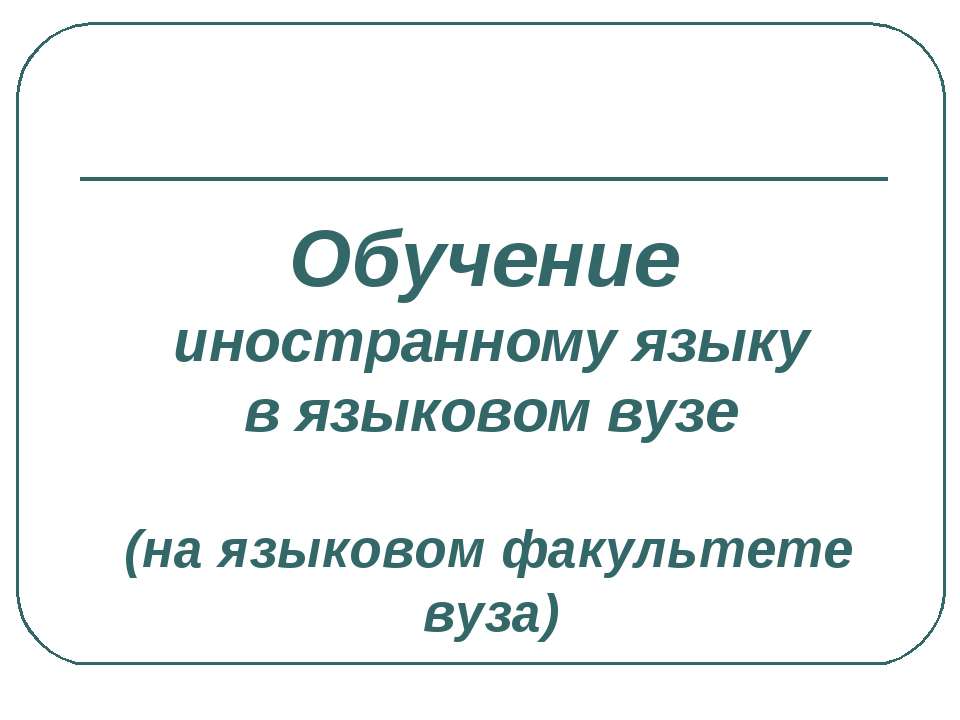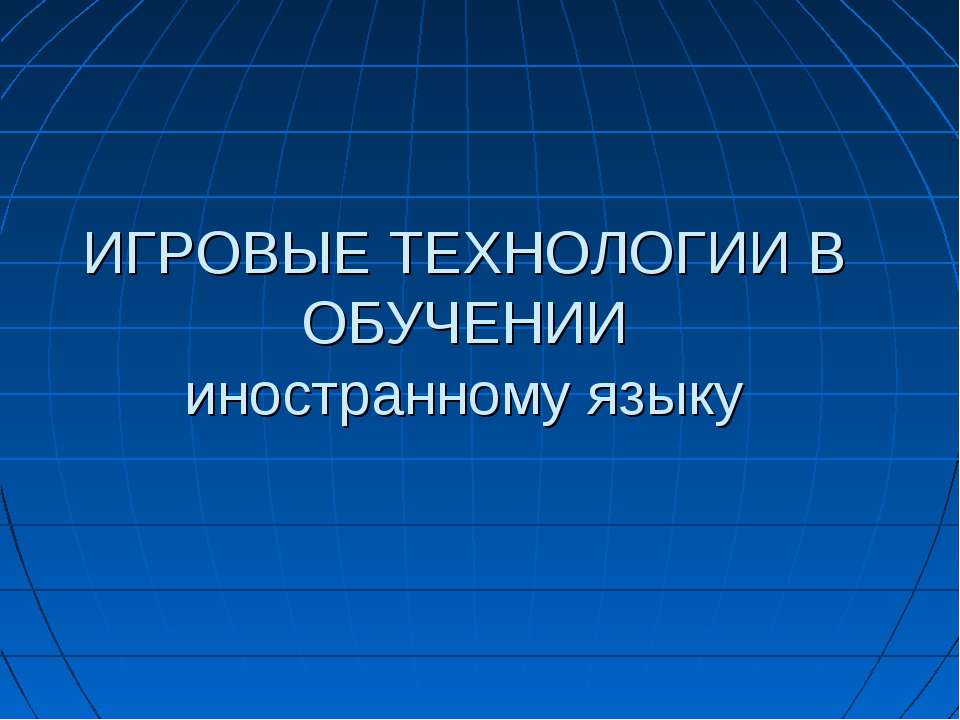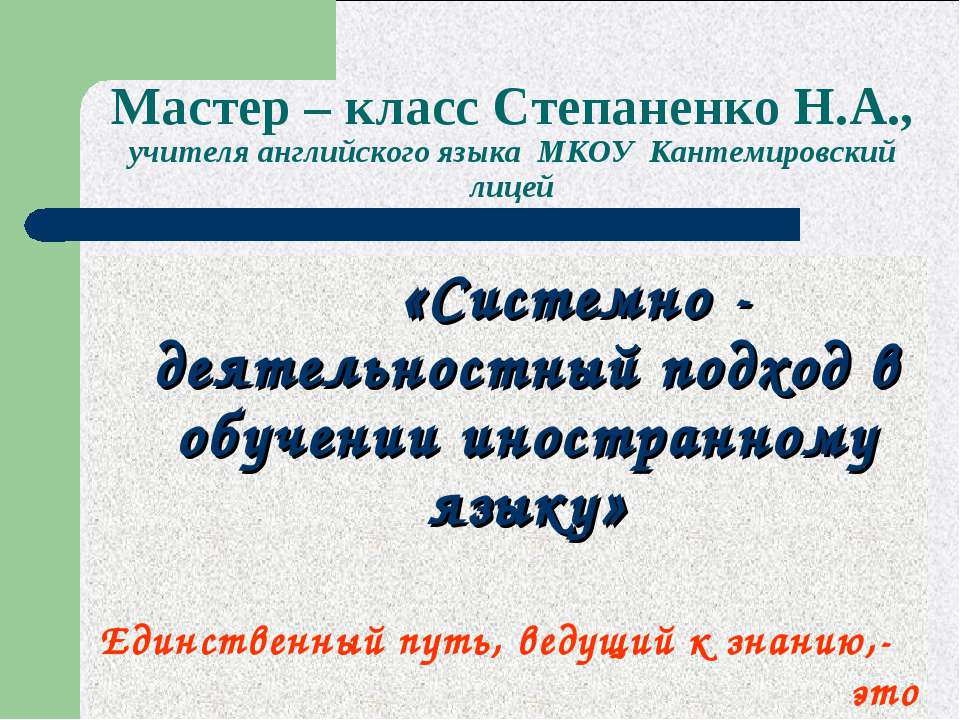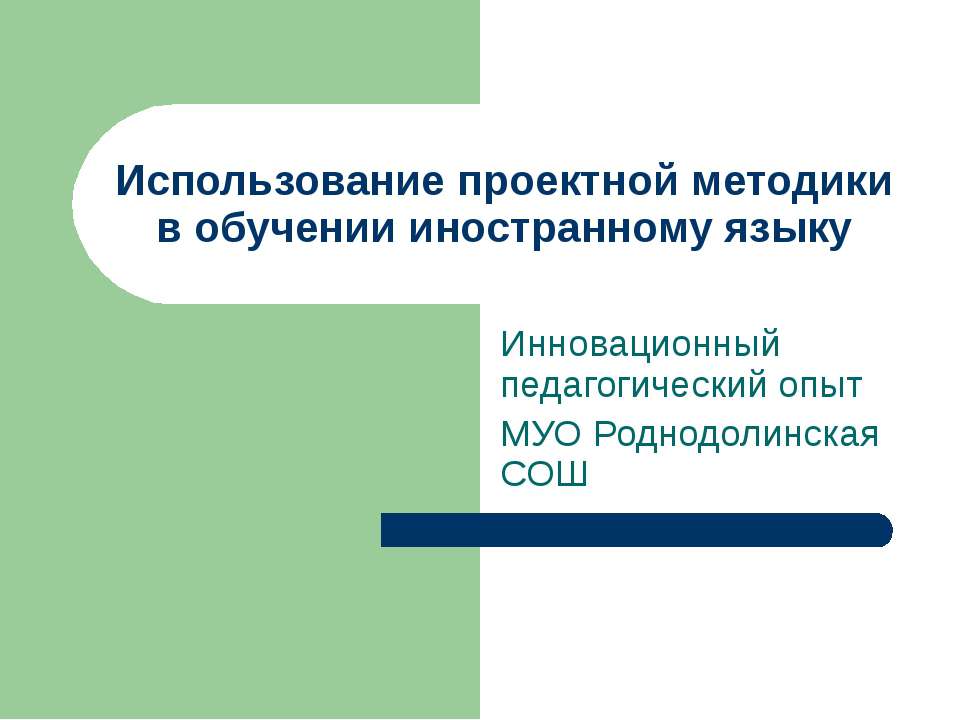Мультимедийная презентация к проведению практического занятия по иностранному языку по теме "Флоренс Найтингейл – основоположница сестринского дела" "
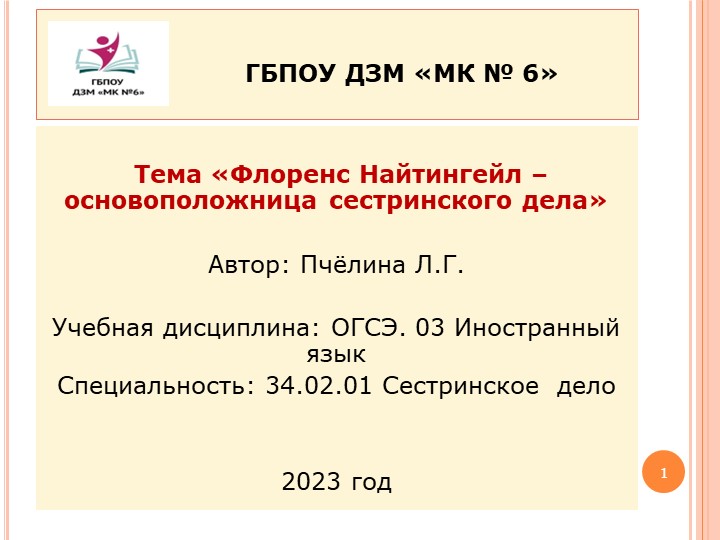
- Рубрика: Презентации / Другие презентации
- Просмотров: 232
Презентация "Мультимедийная презентация к проведению практического занятия по иностранному языку по теме "Флоренс Найтингейл – основоположница сестринского дела" "" онлайн бесплатно на сайте электронных школьных учебников edulib.ru
ГБПОУ ДЗМ «МК № 6»
Тема «Флоренс Найтингейл – основоположница сестринского дела»
Автор: Пчёлина Л.Г.
Учебная дисциплина: ОГСЭ. 03 Иностранный язык
Специальность: 34.02.01 Сестринское дело
2023 год
1
Цели и задачи занятия
Уметь:
-читать, писать и переводить терминологию по теме занятия.
-правильно читать и переводить текст по теме занятия
-отвечать на вопросы по прочитанному.
-правильно использовать основные грамматические категории
-выполнять лексико-грамматические упражнения
-вести простейшую
Развивать навыки понимания иноязычной речи.
Воспитывать умение работать сообща.
2
Цели и задачи занятия
Знать:
-правила чтения.
-основные правила технического перевода.
-лексику и речевые обороты по теме занятия.
-грамматические категории по теме занятия.
Развивать навыки чтения англоязычных текстов для получения различных видов информации.
Воспитывать умение слушать мнения других людей, навыки ведения беседы.
Развивать у студентов логическое мышление, внимание, память, языковую догадку, умение работать сообща.
3
План занятия
1. Организационный момент: приветствие, проверка внешнего вида, беседа с дежурным, запись в тетрадь число, тема занятия.
2. Речевая разминка.
3. Проверка домашнего задания.
4. Актуализация и коррекция опорных знаний-умений.
5. Мотивация учебной деятельности.
6. Изложение нового материала.
7. Обобщение и систематизация знаний.
8. Рефлексия.
9. Итоги занятия.
4
PRONUNCIATION
Repeat after the teacher:
a founder – основатель
wealthy – богатый
crowded – переполненный
a candel – свеча
clotted – запекшийся (о крови, пота)
supplies – снабжение, запасы
to recover - выздоравливать
5
Речевая разминка.
Remember the proverbs and sayings
The cat is out of the bag. / Truth will out.
Кот появился из мешка. / Правда всегда проявится.
The early bird catches the worm.
Дословно: Ранняя птичка ловит червя.
Русский аналог: Кто рано встает, тому Бог подает. / Кто первый встал - того и тапки.
6
Грамматика. ФОРМЫ И ФУНКЦИИ ИНФИНИТИВА И ГЕРУНДИЯ/ FORMS AND FUNCTIONS OF INFINITIVE AND GERUND
7
Между инфинитивом и герундием имеется значительное сходство, именно поэтому использование их часто вызывает сложности. Обе глагольные формы выполняют целый ряд синтаксических функций существительного, т.е. они могут употребляться в функции подлежащего, дополнения, определения, именной части именного составного сказуемого.
FUNCTIONS. Инфинитив
1. Подлежащее. То smoke is harmful. - Курить вредно.
То obey the laws is everyone's duty. - Соблюдать законы - обязанность каждого.
Saving money now is practically impossible. - Экономить (отложить) деньги сейчас практически невозможно.
2. Часть простого сказуемого в сочетании со вспомогательными глаголами. I shall go to Crimea. - Я поеду в Крым.
I didn't see the new production of our drama theatre. - Я не видел новую постановку нашего драматического театра.
3. Часть составного глагольного сказуемого.
а) в сочетании с модальными глаголами: Не can dance twist. - Он умеет танцевать твист.
б) в сочетании с глаголами, которые без инфинитива не дают полного смыслового значения: to begin - начинать, to continue - продолжать, to decide - решать, to want - хотеть, to hope - надеяться, to try - пытаться, стараться, to end - закончить, to stop - остановиться и др.:
He decided to rest in Sochi. - Он решил отдыхать в Сочи. She hoped to get tickets for the concert. - Она надеялась достать билеты на концерт.
Поставить закладку
4. Именная часть составного сказуемого.
Our plan is to work during our summer vacation and then buy a tape player and some cassettes. - Наш план – работать во время летних каникул, а затем купить магнитофон и несколько кассет.
5. Дополнение (после переходных глаголов). She asked me to buy five carnations for our mother for the 8th of March. - Она попросила меня купить пять гвоздик нашей маме к 8 Марта. I told him to go to the dentist. - Я велел ему пойти к зубному врачу.
6. Определение. I have no desire to order these books. - У меня нет желания заказывать эти книги.
The captain was the last to leave the ship. - Капитан был последним, кто покинул корабль. (Капитан последним покинул судно.)
8
Инфинитив употребляется после глаголов:
agree (соглашаться), arrange (организовать), ask (просить, спрашивать), choose (выбирать), decide (решать), demand (требовать), deserve (заслуживать), expect (ждать), fail (потерпеть неудачу, проваливать), hope (надеяться), intend (намереваться), learn (узнать/учить), manage (удаваться), mean (намереваться), offer (предлагать), plan (планировать), prepare (готовить), pretend (претворяться), propose (предлагать), prove (доказывать), promise (обещать), refuse (отказать), tend [иметь склонность, стремиться threaten (угрожать)]
9
Список глаголов, после которых употребляется существительное или местоимение + инфинитив:
10
beg (умолять), call (звонить), choose (выбирать), command (командовать), convince (убеждать), direct (направлять), encourage (вдохновлять), forbid (запрещать), instruct (инструктировать), invite (приглашать), know (знать), persuade (уговаривать), oblige (заставлять), order (приказывать), recommend (рекомендовать), require (требовать), teach (учить), tell (говорить), expect (ожидать), want (хотеть), warn (предупреждать), wish (желать) и др.
Study grammar and practice doing exercises.
11
18.1. Choose the right from fo the verb.
1. Her teacher encourages her to finish / finish her project by herself.
2. This nurse persuaded the patient to drink / drink the mixture.
3. The physician recommended my granny to walk / walking every day. 4. I will agree to meet / meet Olga sometime next week. 5. I am trying to improve / improve my English Grammar. 6. The director is planning to dismiss / dismiss this doctor. 7. Helen warned him to change / changing his passport soon as it was invalid.
18.2. Complete the sentences.
Offer, Forbids, Deserves, Would prefer, don't like, tends, decided
1. I don't like metro. I__to take a taxi.
2. Rachel_to take any risks.
3. Joy always_to know things in advance.
4. She_an award as her essay is the best.
5. Mum_her little son to play with the tablet as he can break it.
6. Henry_to invite Mary to the birthday party.
7. We_to go to the seaside in a week.
Study grammar and practice doing exercises.
12
18.3. Remember the forms of the infinitive and put it in the right form.
1. Maria promised_(help) her little sister.
2. Trade is believed (to take place) throughout much of recorded human history.
3. They made me wait two and a half hours before a doctor finally agreed (examine) me.
4. Mother forgot__(book) the tickets.
5. You shouldn't__(argue) with your father.
6. This old song made me_(cry).
7. Let me__(introduce) myself.
18.4. Translate into Russian, paying attention to the infinitive functions.
1. I agreed to help her with her translation. 2. The doctor convinced to make another injection to the sick person. 3. Her mother wants to buy a new sofa. 4. A nurse warned him to be careful with that medicine. 5. Our teacher told us to start doing this exercise. 6. The students persuaded their dean to cancel that conference. 7. The patient agreed to be operated. 8. She intended to enter the medical college. 9. We promised to visit the patient next week. 10. Henry will manage to open a new shop.
2. «Florence Nightingale»
Работаем по раздаточному материалу.
текст «Florence Nightingale» слайд 14-18. Работа со словами: выпишите незнакомые слова из текста и найдите в словаре перевод, выучите слова.
Работа с текстом: прочитайте и переведите текст. Выполните задание к тексту.
Домашняя работа: подготовить план рассказа и составить рассказ по теме.
13
Florence Nightingale
Florence Nightingale
День рождения: 12.05.1820 г.
Место рождения: Флоренция, Великобритания
Дата смерти: 13.08.1910 года
Место смерти: Лондон, Великобритания
Гражданство: Великобритания
14
Прочитайте и переведите текст.
Before the 1850s nursing in England was classed with the lowest kind of work. Women who worked in public hospitals were regarded as rough, ignorant and dirty. Florence Nightingale was brought up in a wealthy family. In those days girls like her were expected to marry well and produce children. Florence’s parents were horrified when she told them that she wanted to become a professional nurse and she went abroad. She spent three months in Germany and a short time in Paris observing their methods. To gather information about hospital administration she devoted a lot of time writing to institutions in various European countries. In 1853 she took over the administration of a women’s hospital in London and reorganized it with great success. The following year England went to war with Russia. Florence Nightingale was asked to help and in the autumn of 1854 she sailed for the Crimea with a party of 38 other nurses. The hospital was a crumbling old building. Many were lying on the bloodstained floors because there were not enough beds. There was a shortage of everything including bandages, medicine, blankets, even soap and the wards were rat-infested-there was filth everywhere. Together with her team she set to work. Her nurses scrubbed the wards, corridors and lavatories. She reorganized the kitchens and set up a laundry. For months she worked up to twenty hours a day, ending each day by visiting the wounded soldiers, carrying a lamp in her hand. Queen Victoria offered her a reward for the work she had done. Instead Florence Nightingale asked people to give money to set up schools to train nurses. The money poured in. In 1860 a nursing school was opened in London and similar training schools were soon set up in other places. The student nurses were carefully chosen. They had to be literate, honest, hard working and willing to live under strict discipline. Even their personal diaries were regularly inspected to see how they were behaving themselves
15
Florence Nightingale — The Lady with the Lamp.
Florence Nightingale whose surname in Russian
means «соловей».
Florence Nightingale opened up a whole new field of work for women. By 1900 Britain had 64,000 skilled nurses, ensuring that their hospitals were efficient and hygienic. Florence Nightingale lived to the age of 90 and died in 1910.
16
The “Nightingale Pledge” (Клятва Ф. Найтингейл)
17
I solemnly pledge myself before God and in the presence of this assembly, to pass my life in purity and to practice my profession faithfully.
I will abstain from whatever is deleterious and mischievous, and will not take or knowingly administer any harmful drug.
I will do all in my power to maintain and elevate the standard of my profession, and will hold in confidence all personal matters committed to my keeping and all family affairs coming to my knowledge in the practice of my calling.
With loyalty will I endeavor to aid the physician, in his work, and devote myself to the welfare of those committed to my care.
Перед Богом и перед лицом собрания я торжественно обещаю вести жизнь, наполненную чистотой, и честно исполнять профессиональные обязанности.
Я буду воздерживаться от всего ядовитого и вредного и никода сознательно не использую и не назначу лекарств, которые могут навредить. Я сделаю все, что в моих силах, чтобы поддерживать и повышать уровень моей профессии. Я буду беречь в тайне всю личную информацию, которая окажется в моем распоряжении во время работы с пациентами и их родственниками.
Я буду преданно помогать врачу в его работе и посвящу себя неутомимой заботе о благополучии всех порученных всех порученных моей опеке.
Задание к тексту.
Выберите правильный ответ
18
1) Florence Nightingale was:
a) an English nurse; b) a Russian nurse; c) a French nurse; d) a Turkish nurse.
2) Florence was born in:
a) autumn; b) winter; c) spring; d) summer.
3) Florence was called:
a) the lady with the clock; c) the lady with the flowers;
b) the lady with the lamp; d) the lady with the chair.
4) She studied the method of:
a) jumping; b) nursing; c) teaching children; d) swimming.
5) She worked in:
a) hospitals; b) shops; c) schools; d) offices.
6) In 1854 she worked in the hospital in London in:
a) Oxford Street; b) Fleet Street; c) Westminster; d) Harley Street.
7) In 1854 Florence went to the Crimean War together with:
a) 10; b) 100; c) 50; d) 38 nurses to help soldiers get better.
8) In 1860 she opened a school for nurses at St. Thomas’ hospital in:
a) Paris; b) London; c) Moscow; d) St. Petersburg.
9) Florence got the King’s Red Crist in:
a) 1883; b) 1903; c) 1803; d) 2013.
10) She was in Britain:
a) the first; c) the third;
b) the second; d) the fourth woman to be awarded the Order of Merit in 1907.
11) She died in:
a) 1920; b) 1910; c) 1935; d) 1905 at the age of 90.
23
Составьте «Mind Map» к тексту
«Флоренс Найтингейл – основоположница сестринского дела»
Флоренс Найтингейл – основоположница сестринского дела


























